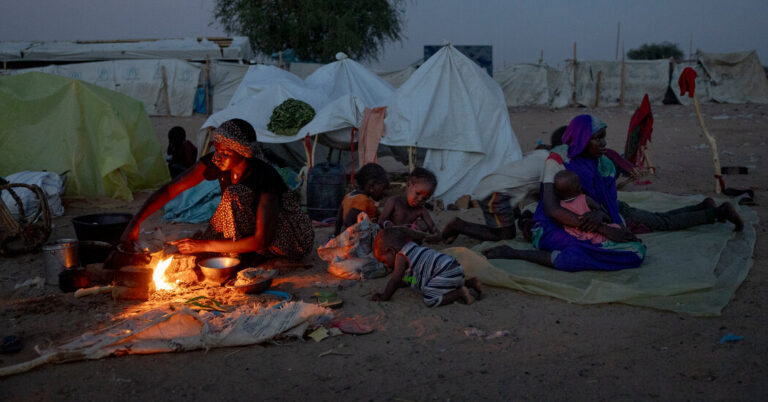Sudan’s military announced Thursday it would reopen a major border crossing with Chad whose closure had become a major obstacle to increasingly urgent efforts to reach millions of starving people in Sudan.
Until just a few days ago, the military was insisting it had to keep the border closed at Adré, in eastern Chad, to prevent weapons being smuggled to the Rapid Support Forces, the powerful paramilitary group it has been fighting in Sudan’s vicious civil war since April 2023.
But the six-month closure throttled the flow of U.N. trucks carrying vital relief aid at a time when Sudan is plunging into a famine that experts warn could be the world’s worst in decades.
In an unexpected reversal, Sudan’s military-dominated Sovereign Council announced Thursday that it would immediately reopen the Adré crossing for three months. U.N. and aid groups, caught unaware, welcomed the decision, with one U.N. official saying it could make a “significant difference” to relief efforts. But those providing aid were also seeking clarification from the Sudanese authorities about any potential restrictions.
Adré is the main gateway from Chad into Darfur, the region in western Sudan that suffered a genocide two decades ago, and which is now the center of a famine that threatens the entire country.
A famine, the world’s first since 2020, was officially declared on Aug. 1 in the Zamzam camp in Darfur. Across the country at least 26 million people, over half Sudan’s population, are in a food crisis, the world’s leading body of hunger experts estimates.
At the United Nations Security Council last week, James Kariuki, Britain’s deputy permanent U.N. representative, accused the Sudanese military of obstructing aid by shutting the Adré crossing, which he called “the most direct route to deliver assistance at scale.”
At least 100 people are dying from hunger every day in Sudan, Mr. Kariuki added, calling the famine “entirely man-made.”
Aid workers and U.N. officials in Adré repeated those assessments during a visit by a New York Times reporter and a photographer last month. Nearly 200,000 people are crammed into a crowded camp around the city. But U.N. aid trucks were forbidden from driving into Sudan because of the shuttered border.
The Rapid Support Forces, which controls most of Darfur, has also been accused by rights groups and American officials of obstructing humanitarian aid and using starvation as a weapon of war. Since the war started in April 2023, R.S.F. fighters have attacked aid convoys and burned a factory that makes baby food, officials say.
Adré is key to scaling up aid deliveries because it offers relatively easy access to the parts of Darfur where the hunger crisis is greatest. Until February, aid trucks filled with food could easily cross.
After the Sudanese military closed the crossing in February, it directed the United Nations to send its trucks through Tine, Chad, a remote crossing 150 miles by road to the north. But that alternative route proved slow, expensive and dangerous, allowing just a fraction of the needed aid to get through.
And then Tine closed entirely in recent weeks as heavy seasonal rains made local roads impassable.
Sudanese commentators said the military may have reopened the border to direct attention away from its refusal to attend the American-led peace talks in Geneva, which the R.S.F. is attending.
The military’s decision will increase pressure on the international aid community to do more for Sudan at a time when money is scarce. The United States, which gives more than any country, announced another $204 million for Sudan last month.
But the United Nations says it has received just $1 billion of the $2.7 billion it needs to deal with the growing famine.



